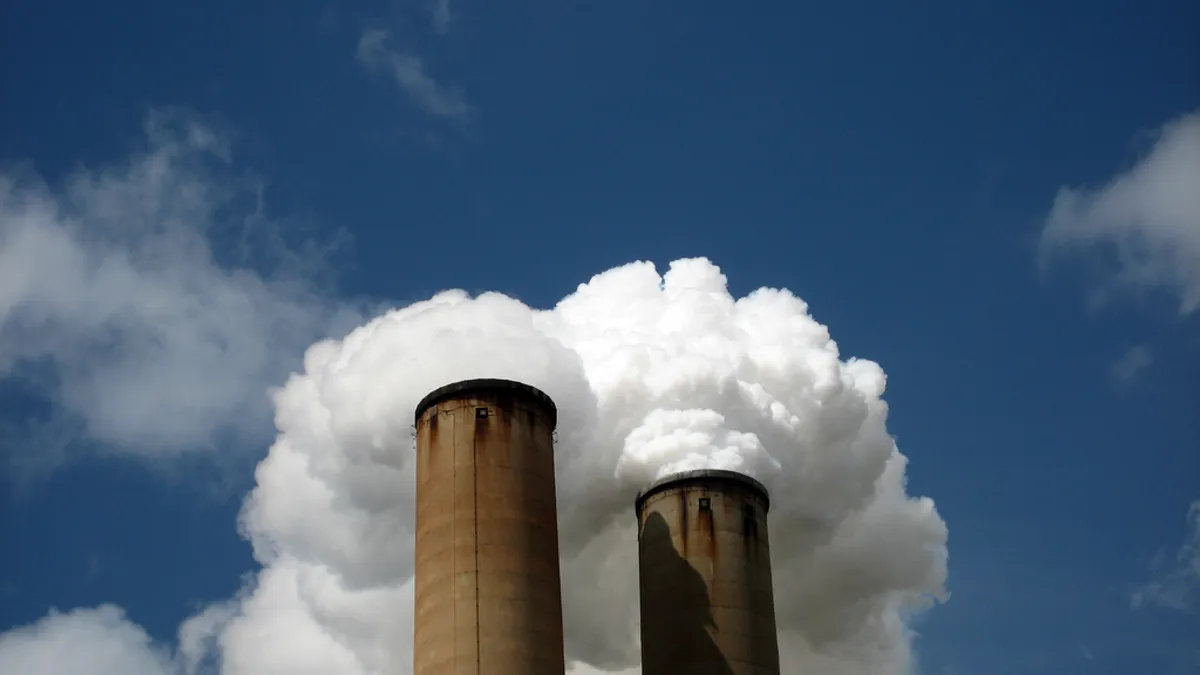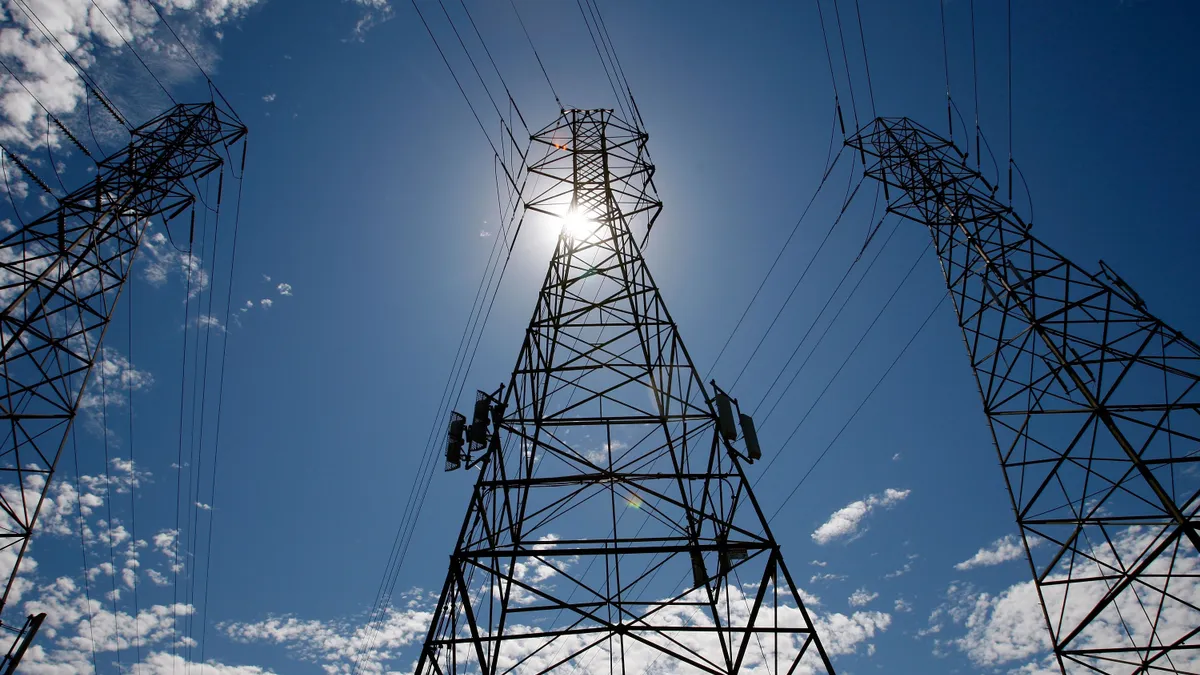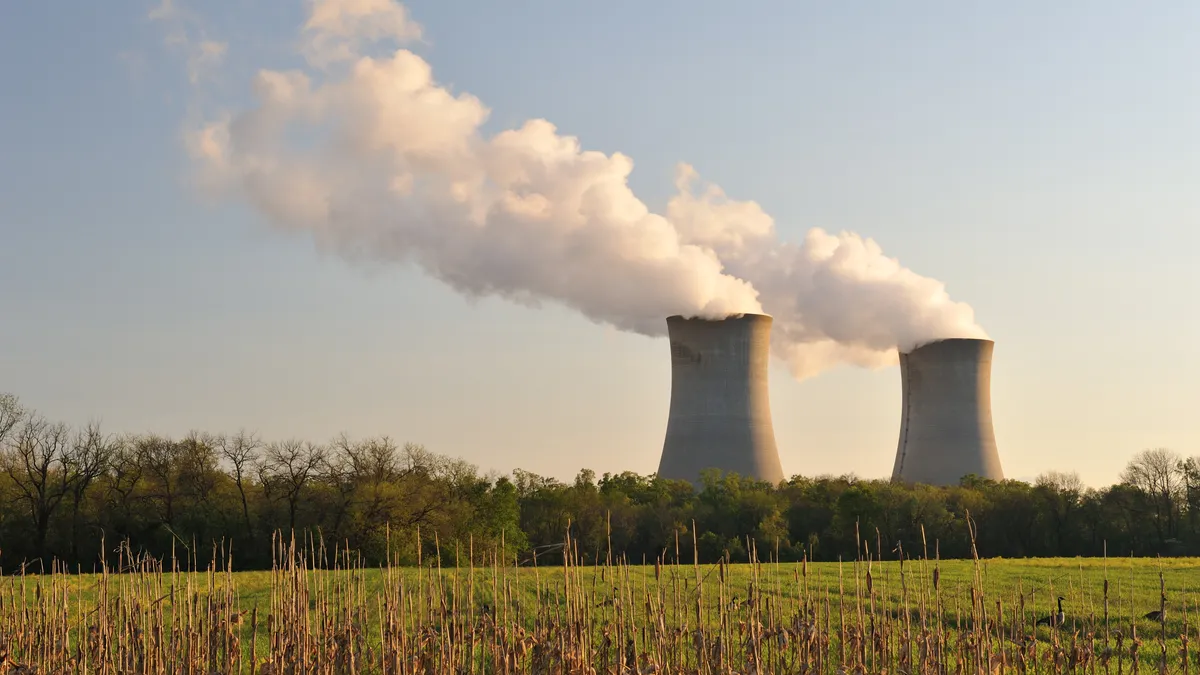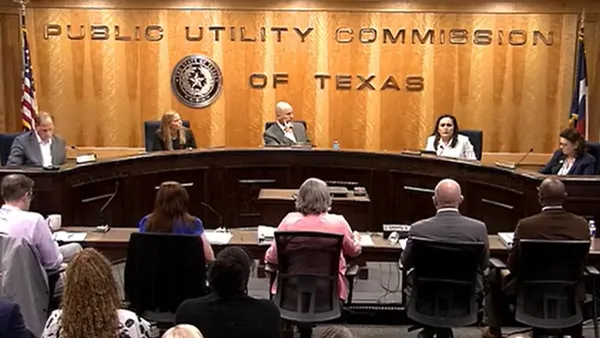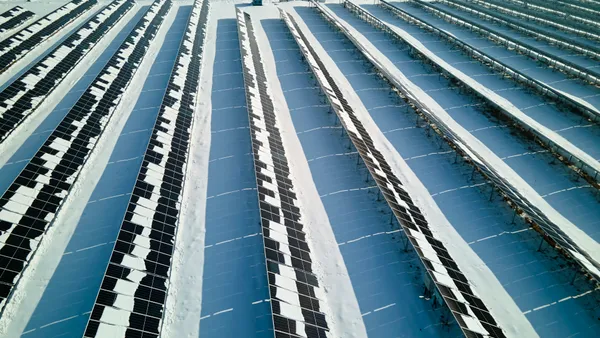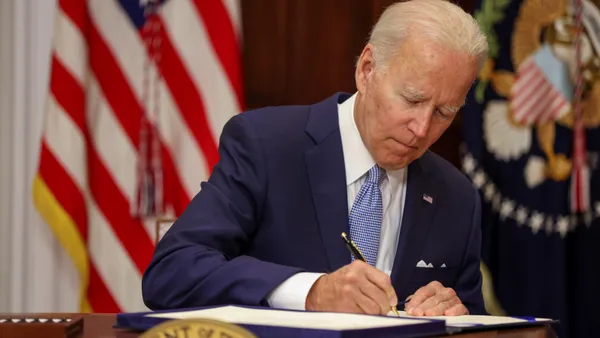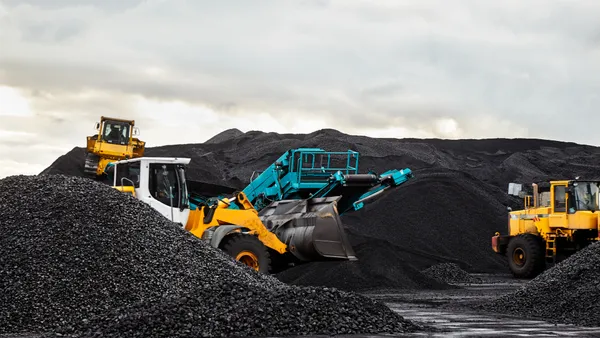Dive Brief:
- The Washington Department of Ecology has begun crafting new rules to reduce greenhouse gas emissions from the state's largest polluters, including gas distributors, power plants and metal manufacturers, the Spokesman-Review reports.
- Under the new rules, regulated businesses would have a broad range of compliance options, including funding projects that reduce carbon pollution and trading credits with other entities.
- The state will take comments and hold public forums over the next year to help develop the new rules.
Dive Insight:
Washington state has begun the process to develop new greenhouse gas emissions rules, an issue state officials say hits the area especially hard because of its dependence on snow pack for hydro power.
"This year's record-setting drought and wildfires are sobering examples of what our future could look like if we don’t take action on climate change," Ecology Director Maia Bellon said in a statement. "We need to do our part to protect what we have for future generations. We can’t afford the cost of inaction."
The new rules will target the state's largest polluters, businesses and organizations the Department of Ecology says are responsible for producing 100,000 metric tons or more of greenhouse gases each year. Those types of businesses include: natural gas distributors, petroleum fuel producers, factories, power plants, waste facilities and metal manufacturers.
In July 2015, Washington Gov. Jay Inslee (D) directed the state to strengthen existing air pollution rules and set limits on greenhouse gases to help meet emission reductions passed by the Legislature in 2008. Seven years ago, state lawmakers set a goal of reducing greenhouse gas emissions in the state to either 50% below 1990 levels, or 70% below the state's anticipated emissions in 2008.
Washington communities depend on snowpack for drinking water, irrigation and almost 75%of the state’s electrical power.
Bellon said businesses would have a "broad range of compliance options," and in addition to gradually reducing emissions businesses would be allowed to obtain or trade credits as well as fund projects that reduce carbon pollution.
"We're at the beginning stages and want to craft the rule together with industry, tribes, environmental groups and the public to ensure clean air in Washington," Bellon said. A schedule of hearings has not been set.



